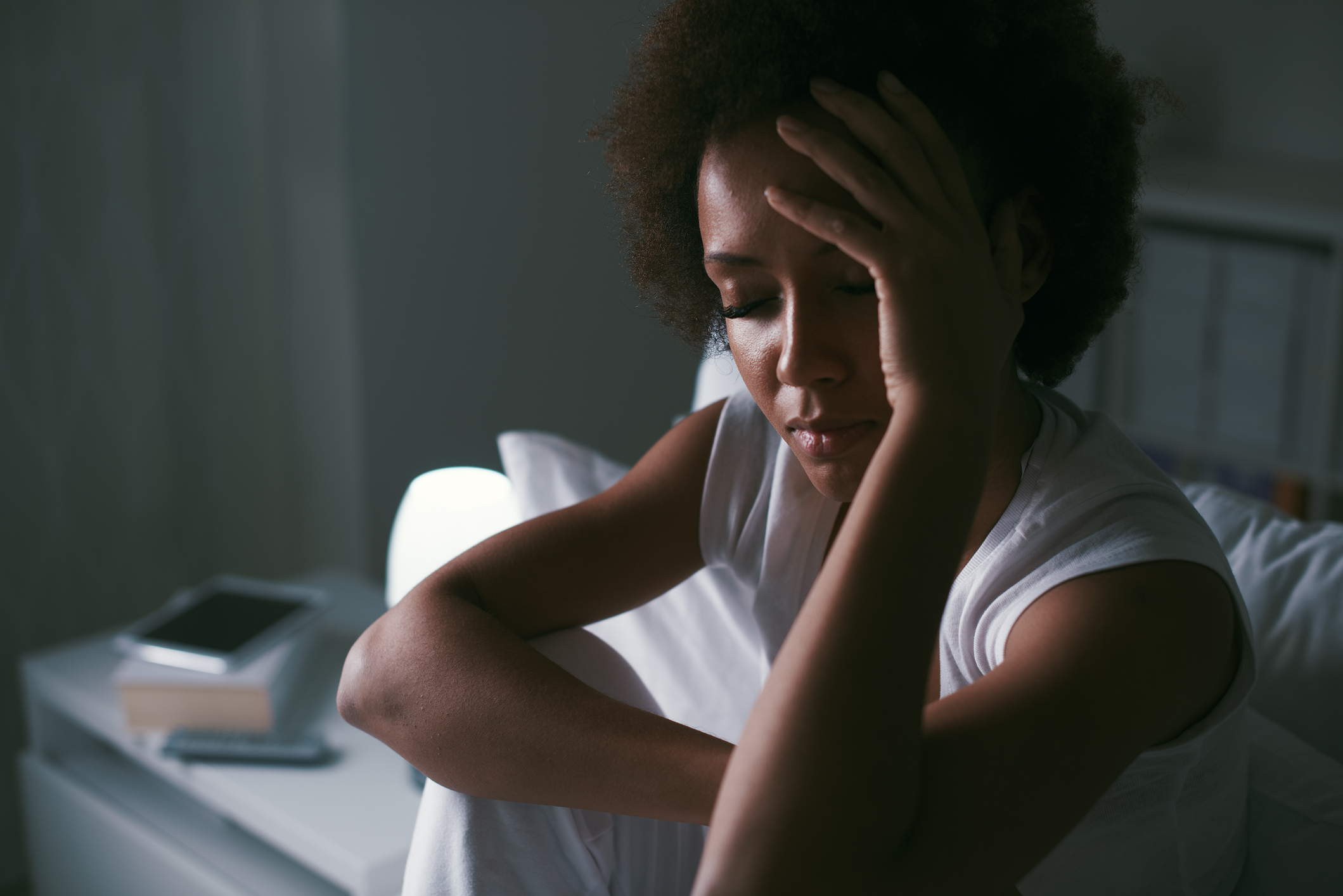- Close
- Back
- For Patients
- For Doctors
Anxiety
While a certain amount of anxiety is to be expected during the course of everyday life, persistent worry should be treated as a serious issue. Such anxiety may be experienced in the form of ongoing stress about past and upcoming events. It may present as Generalised Anxiety Disorder (GAD) or as a symptom of such conditions as PTSD and ADHD. While it may be treated with antidepressants, such medications are associated with side effects such as insomnia and trembling. CBD-rich medicinal cannabis may be considered as an alternative, with such benefits as the increase of natural serotonin and prevention of physical anxiety symptoms.


Learn more about symptoms
Anxiety is a mental health symptom which may be diagnosed as Generalised Anxiety Disorder (GAD), Obsessive-Compulsive Disorder (OCD), Panic Disorder, Post-Traumatic Stress Disorder (PTSD) or Social Anxiety. There can be an overlap between these forms, but all are characterised by panic, stress or fear. Affecting people physically as well as psychologically, it can become debilitating and negatively impact the everyday quality of life.
High levels of anxiety affected “the equivalent of 19 million adults in Great Britain” in 2020 according to the Office for National Statistics.
Standard courses of treatment include prescribing anti-anxiety medication and therapy such as Cognitive Behavioural Therapy (CBT). Increased physical activity is also strongly encouraged. Antidepressants such as SSRIs (including Sertraline and Paroxetine) and SNRIs (including Venlafaxine and Duloxetine) should be taken regularly.
There may be various side effects such as agitation dizziness and erectile dysfunction in men, or nausea, headaches and insomnia. These effects vary from individual to individual.
At low doses, THC can have an anxiolytic effect, but at high doses THC is anxiogenic and can trigger panic attacks. Therefore, management of anxiety symptoms with medical cannabis would typically involve a CBD-predominant preparation. Indeed, CBD is known to interact with serotonin receptors in the brain, which are involved in regulating anxiety, mood and happiness. If a higher THC dose is needed in order to manage other symptoms (e.g pain)
then the ‘start low, go slow’ approach to titrating the THC dose should help to mitigate any potential side effects.
Several studies have shown that medical cannabis can reduce anxiety in patients suffering with chronic pain, and this can also be accompanied by a reduction in the intake of anti-anxiety medications such as benzodiazepines. There is also emerging evidence supporting the use of high-CBD preparations in the management of a variety of anxiety disorders. For example, one study found that 4-week treatment with CBD oil reduced anxiety in teenagers with social anxiety disorder compared to placebo. Neuroimaging research has also revealed that in individuals with social anxiety, the anxiolytic effects of CBD (compared to placebo) are accompanied by modulations in blood flow to limbic and paralimbic brain areas that are implicated in the processing of anxiety.
FAQs about Medical Cannabis


Yes. Cannabis-based medicinal products (CBMPs) have been legal since the 1st of November 2018, when they moved from a Schedule 1 product to a Schedule 2 product. This reflects their potential for medical use.
Cannabis-based medicinal products, also known as CBMPs, can be prescribed by private consultants, when appropriate, within their specialty area when there is unmet clinical need.
In the UK cannabis medicines are accessed primarily via private clinics. However, any specialist physician can prescribe cannabis medicines. GROW® is here to provide education and support to any specialists looking to prescribe or just to find out more.
There are 3 licensed medicines which contain cannabinoids – Epidiolex for some forms of epilepsy, Sativex for multiple sclerosis (MS), and Nabilone for chemotherapy-induced nausea and vomiting (CINV). However, only a handful of prescriptions have been issued in the NHS to date.
Most cannabis-based medicinal products (CBMPs) are instead unlicensed, and they must be written on a private prescription, typically issued by private clinics specialising in medical cannabis treatment.
Cannabis medicines come in multiple forms; flowers, often referred to as herbal cannabis (to be vaporised, rather than smoked), oils (taken under the tongue) and capsules. Cannabis medicines come in high-THC, high-CBD and balanced varieties.
Smoking medical cannabis is illegal. Medical cannabis can instead be taken in different forms depending on the desired speed of onset and duration of action, which is discussed between the patient and their doctor.
It’s important to find a clinic that works for you. Most importantly you need to find a Doctor that specialises in your condition. For example, patients with pain will need to see pain specialist, while those with a mental health condition must see a psychiatrist.
It’s important for patients to know they can use any pharmacy that supplies the appropriate medicines in the UK.
Some clinics have a preferred pharmacy but will be able to send prescriptions to others if needed. If patients have any questions about available medicines, they can contact IPS Pharma.
To speed up the process, patients should bring a copy of their medical records. These are then forwarded to the clinic in advance of the first consultation.
No. Cannabis-based medicinal products (CBMPs) are only prescribed by GMC-registered specialist doctors. As they are medicinal, CBMPs are regulated by the Medicines and Healthcare products Regulatory Agency (MHRA); which ensures the safety, quality, and effectiveness of medicines in the UK.
Over-the-counter (OTC) CBD products can be purchased without a prescription in pharmacies, health food shops, or online. These may come in forms such as oil tinctures, capsules, or vapes. They are not medicinal products as they are regulated by the Food Standards Agency (FSA) as a food supplement, with a 0.3% limit on THC.
Patients are free to seek a second opinion from another clinic. Patients should ensure the clinic has communicated their reasons for deciding not to prescribe. It may be that they feel you should try other medicines before trying cannabis medicines, or that they need to see more information about your medical history before they are happy to prescribe.
For patient enquiries - [email protected]
For doctor enquiries - [email protected]
For all other enquiries – [email protected]
Healthcare professionals can also sign up to our Doctor Portal.


